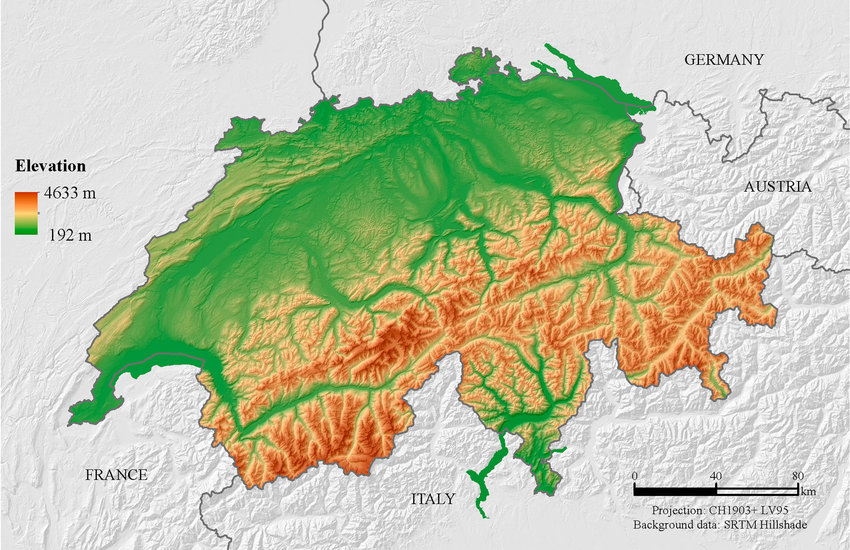Depending where you're from this might be a perception issue. Cities in Europe are generally smallish on modern city world scale. 200.000-500.000 inhabitants, with just a few larger city exceptions per country. There's just a LOT of those medium-large cities and they are often all rather near to each other. How a "city" is defined can differ a lot, many urban areas consisting of many entangled and interdependent cities are technically still all their own (historic) "city". Look at the Ruhr area for example, the Randstad, Flemish Diamond, ...
freebee
Public torrents suck for music these days. Little available and a lot that is there is FLAC only, no mp3-320
Not necessarily. The divisions in middle east today have roots to end of WW1 and collapse of Ottoman empire and decline of British empire. There would still be a shit load of oil in middle east. There would still be limited amount of water... It could be very different, which countries ally, what kind of regimes etc, but not necessarily more peaceful region as a whole.
The way the economy in the soviet union was micromanaged in super centralised way was key to its collapse, especially the final 10-15 years. Soviet Union did have great innovation spurs in IT, rocketry, etc but it was impossible to diversify said innovations further, impossible to mass market it, impossible to mass export it. The centralised economic system lagged enormously and was incredibly inefficient, 1 town having 500000 jackets but no shoes, other town having 100000 chandeliers but no food etc. On top there was really really high levels of corruption. The economic model was essential in the demise of the Soviet Union, once they let go of some regulations a tiny bit, it all fell apart fast. China paid attention, they keep trying to waggle between statecontrolled and free market... They are well aware similar risks still exist in their state-owned companies to this day.
What's the name of the app you tried?
the coordinates aren't there i think, but there are github projects out there that "detect" the panels and suggest split based on that. For most of the panels of most of the comics, that would be more than enough to do a clean split. I just can't find a real relatively easily deployable service that incorporates it.
https://maxhalford.github.io/blog/comic-book-panel-segmentation/
A good movie in 720p will always be a good movie. A crappy movie with shitty story and shitty acting will still suck in 4K or 8K or 4D or whatever will come. Like good vinyl LPs from 60s-70s never really went bad if they were well taken care of...
It's quite a theoretical approach. Antwerp has a lot of 30 kmh streets, but you shouldn't expect cars to actually follow the rules in many of them. Same with many bicycle streets: it's not allowed, but you'll be overtaken A LOT by cars in those streets...
They pick it up, but it takes a while, days or weeks depending on where you dump it. Meanwhile the trash in the streets attracts rodents and vermin. Old electronics end up in the environment, batteries can leak etc.
I get the smell part. I've "dumped" an opened empty can of fish sometimes, because SO can't stand the smell of it so it can't wait until trash pick-up day. I dumped it IN A TRASHBIN at a busstop, not randomly on the ground between houses, soccer clubs and parks... that's just disgusting. The trashbin at a busstop is emptied very regularly and a lot less accessible to most rodents and vermin, yet a lot more accessible to trash collection service from the city. My inconvenience (bad smell) is so not enough to justify just dumping trash anywhere without any care at all.
As for the part "they get paid": it costs a city a lot more to keep streets clean when everyone dumps everything everywhere, than to pay for arranged pick-ups. Everyone including you ends up paying the bill anyhow through taxes and/or less service from city in general because budget's too tight.
Housing is definitely very very expensive in Basel too. But a bit less problematic because of border spillover into Lörrach, Saint-Louis, ...
These kinds of people are why we can't have nice things like public barbecues and toilets in city parks and it makes me sad.









Skyscrapers =/= big city. Basel is a very well known city in western Europe (France, Italy, Germany, Belgium, Netherlands...). Known for it's beautiful old town, trams, many museums. It's the cultural capital of Switzerland. Also with people who never went there. As for "not big", it's just not the case, it spreads out into Lörrach, Rheinfelden, Saint-Louis, lots and lots of people from FR and DE work in Basel, go visit it regularly etc. The commuter attraction reaches easily into Freiburg and Mulhouse, with thousands going there daily to earn a way higher Swiss paycheck. The wider urban area goes towards 900.000 people! Compared to polish cities too it's not that small. It's only the old town and the river area that gives that vibe (stayed out of the wars, nothing was destroyed...). Really the lack of skyscrapers is a very unreliable way to judge how "big" a city is! Basel by the way houses the tallest buildings of Switzerland! Roche towers. High rise is just very uncommon in Switzerland, but they get high density living with regular apartment buildings. I really don't understand where your "Basel is a small provincial town" impression is rooted.